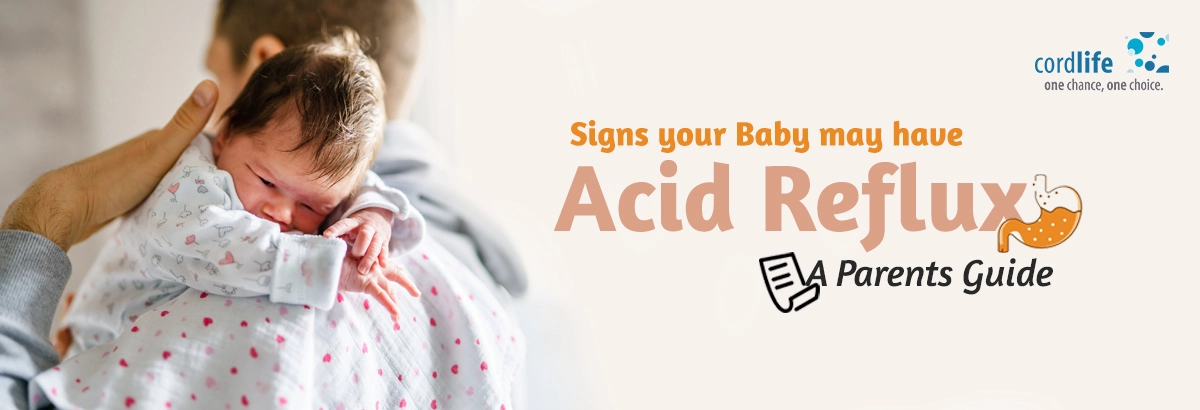Table of Contents
Many new moms breastfeed their newborn/s they must take them in their arms and rub their backs to make them burp. Once your baby burps it sounds like you’ve passed out with flying colours.
But, sometimes, the cute little ones spit up after being fed. This happens when your baby has an indigestion problem. This is also known as acid reflux or gastroesophageal reflux (GER).
Acid Reflux in Babies and Its Reasons
Since the babies’ digestive system is still immature, during breastfeeding or while giving solid food, their stomach quickly fills up with breastmilk, formula, or air. This is normal in babies. But, when the small stomach is unable to reach the capacity to accept the contents going in there, they flow back to the oesophagus.
Some of the contents travel from the oesophagus to the throat and then to the mouth, making them spit up or vomit. Such a phenomenon is known as acid reflux or gastroesophageal reflux disease (GERD).
However, the reasons behind acid reflux in babies are manifold – excess weight in babies can put pressure on the little one’s abdomen, certain spicy food, and drinks (carbonated drinks as well as coffee), and an immature lower esophageal sphincter (LES) – situated in between the oesophagus and stomach can contribute to acid reflux. Sometimes certain medicines also impact a lot.
The Principal Signs of Acid Reflux in Babies
As a new mummy, it may take some time for you to recognize the symptoms of acid reflux in babies, but the earlier the intervention, the faster will be the treatment.
So, you will notice the infant will be faced with several challenges –
- The baby may vomit frequently.
- There is a burning sensation in the chest or throat, a feeling of pain in the abdomen, and gaseousness.
- Breathing problems or wheezing are also seen in babies as a result of acid reflux.
- The little one will fail to gain weight since the baby is vomiting frequently.
- He or she will also cough persistently, especially during the night.
- The baby may be feeling uncomfortable – you’ll notice the little one fussy, and crying.
- He or she may find it difficult to eat the food. The baby will get choked or gagged while getting fed. The baby may also have a sour taste in their mouth.
- The baby may reject the food given to them.
Most of the symptoms mentioned above are manageable, but some of the symptoms outgrow by the time they are 1 year old. This may turn out to be a permanent problem for your child and may require medical intervention.
The Treatment Methods of Acid Reflux in Infants
To further manage the symptoms, you can take the little one to the healthcare practitioner or paediatrician and give medicines to him or her by getting the child’s medical history checked and getting further gastric tests done.
Alternatively, you can try out a few home or natural remedies. The natural remedies include:
- You may hold the baby upright for half an hour after a feeding. This can prevent food from travelling upwards into the oesophagus.
- Feed your baby small amounts so that it is easy on the baby’s stomach.
- Make the little one burp quite often.
- Avoid jostling or bouncing your baby after mealtime.
- Making them wear tight diapers and clothes can add pressure to the baby’s stomach.
- Change the baby’s diet. Eliminate gas-producing food from the little one’s platter.
- Check the size of the nipple bottle while feeding. The nipple may be too small or too big. Ensure that excess air doesn’t get into your baby’s tummy. Due to excess air in the tummy, the baby tends to spit up.
- Also, ensure you thicken the baby’s milk so that it can slow down the baby’s milk intake.
- If your partner smokes, ensure that you keep the baby away from the tobacco smoke. The lower oesophagal sphincter (LES) may slow down. There are chances that your baby’s risk of developing GER is high.
However, if the acid reflux in your baby doesn’t go away on time, and it may seem that it is getting worse tell the paediatrician about it to get it treated with medicines. The aim is to reduce the symptoms.
